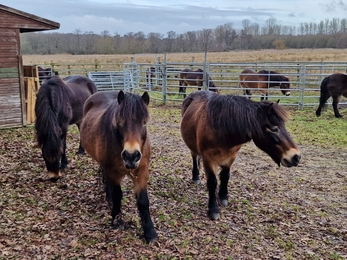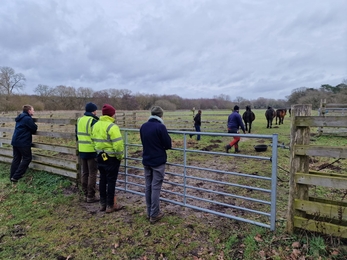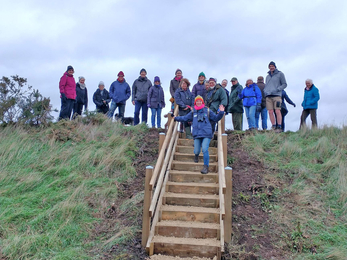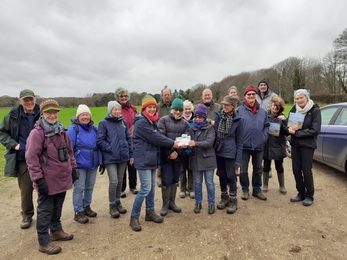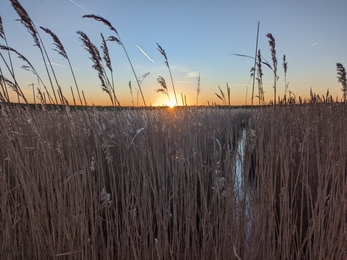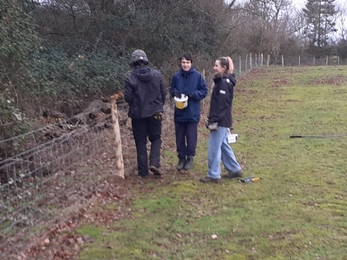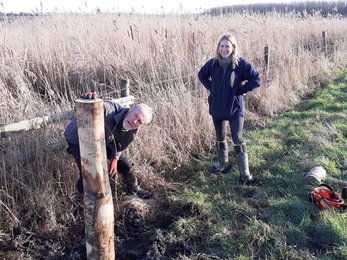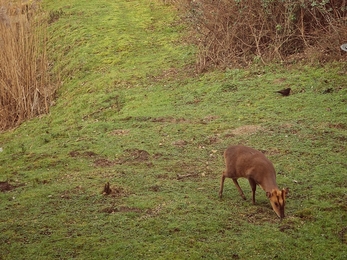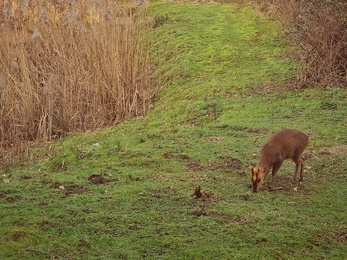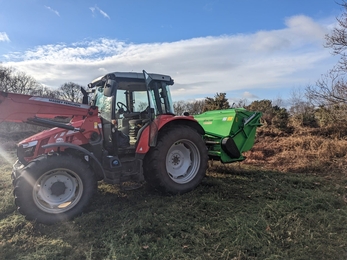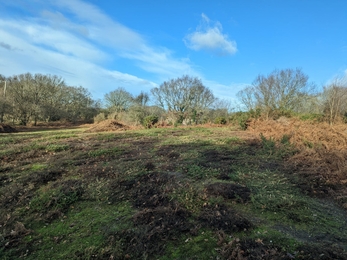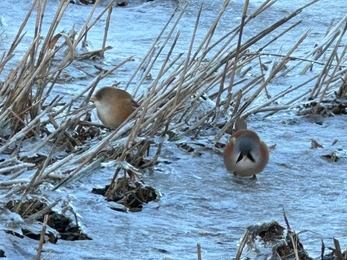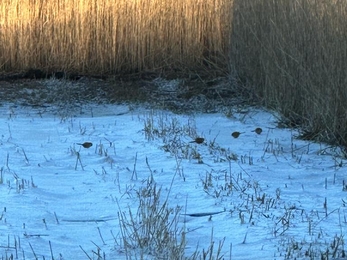Weekly wild news from our reserves - 20 January 2023
Hen Reedbeds sunset - Jamie Smith
There was some excitement at Trimley Marshes this week when a hybrid pochard x ferruginous duck was spotted. Regular volunteer Justin Zantboer took this footage – the hybrid is the one remaining in view with a paler eye and darker back than the pochards surrounding it. A pure ferruginous duck is a rare sighting anywhere in the UK, but although hybrids are more commonly encountered, this is still quite an unusual sighting in the local patch.
Pony practice
This week the west Suffolk team, along with reserve interns, practiced the process of bringing the ponies in at Knettishall Heath. This allowed the adult ponies to mix in with the young ponies for the first time, as the youngsters have been separated up until now. Intern Anneke was thrilled to see one of the braver foals approach an adult, and after briefly checking each other out, they began playfully frolicking!
Martlesham Wilds improvements
It was wonderful to welcome Waldringfield Wildlife Group to our new Martlesham Wilds nature reserve this week. The group generously donated £1330 towards our appeal, and we were delighted to give them a tour and see the footpath improvements put in place by Suffolk County Council. Find out more and donate to the appeal here https://www.suffolkwildlifetrust.org/martlesham-wilds
Suffolk sunset
Warden Jamie snapped this spectacular sunset at Hen Reedbeds, looking across the Blyth estuary.
Fence repairs
Reserves intern Rowan and our brilliant Foxburrow volunteers have been busy fixing the fence at Foxburrow nature reserve to ensure the livestock are safely enclosed. Fence repairs were also underway at Trimley Marshes, where warden Rachel, intern Ella and volunteer Martin were installing box strainers and turning posts. A turning post is required on the fence line for a change of direction of under 30 degrees.
Muntjac
Reserves intern Anneke took these lovely close-ups of a muntjac deer at Lackford Lakes recently. Male muntjacs have short, unbranched antlers that slope backwards, and a pair of long canine teeth. They breed all year-round, but females usually only have one kid at a time. Muntjac deer are also known as 'barking deer' because of their dog-like calls.
Uncovering heather
Warden Jamie has been busy with the Ryetec clearing gorse at Blackheath Common, near Church Farm. This will prevent heather from being smothered and therefore benefit heathland species such as common lizard and silver studded blue butterflies.
Clearings for birds and flora
Our wonderful Carlton Marshes volunteers have been helping with scrub removal on Oulton Marshes this week. Clearing patches of marsh helps to encourage more diverse flora to thrive.
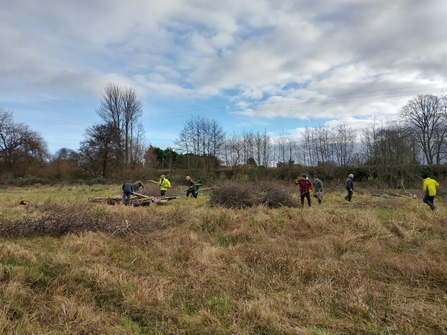
Oulton work party - Lewis Yates
Rewetting for winter waders
Now all the digger work on Peto’s Marsh has been completed and the machinery has departed, warden Gavin and his team have opened the penstock sluice. This allows water from the river to enter and fill the compartment, providing ideal conditions for wintering wildfowl and spring breeding waders.
Islands submerged
The levels of some of the islands on Peto’s Marsh have been lowered, allowing them to be totally covered when the compartment is full of water. The water level will then be lowered slightly just before the bird breeding season, providing lots of exposed mud and edges for waders and chicks to feed on. Allowing these islands to be submerged during the winter will also help to keep down unwanted vegetation in the spring and summer.
Hungry bearded tits
Site manager Matt filmed warden Gavin cutting the reedbed in between the high tides, this management creates ideal reed structure for the coming spring and summer. The bearded tits were loving feeding on the fallen reed seeds on the ice at the base.
Away day
The North East reserves team spent a day helping with woodland management at Bradfield Woods this week. Bradfield Woods is one of Britain’s finest ancient woodlands and has been under continuous traditional coppice management since 1252. Coppicing is a traditional method of woodland management where stems are cut at ground level promoting vigorous re-growth. As the coppice shoots regenerate, their dense bushy growth provides cover for birds such as garden warbler, blackcap and willow warbler as well as providing perfect habitat for dormice.
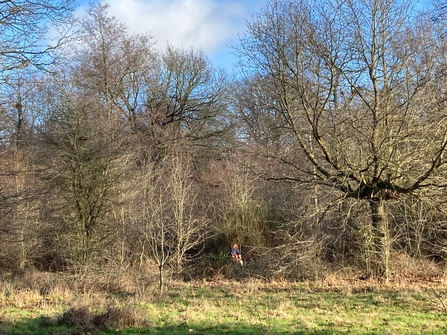
Woodland management away day – Matt Gooch
And finally...
Our multi-talented Michael Strand, Community Fundraising Manager, attended the EASustain festival last weekend, and had a go at doing a curlew impression. It's tricky, as the recording is subsequently increased in speed, but we think his attempt was impressive. We're not entirely sure what the real curlews think though...


